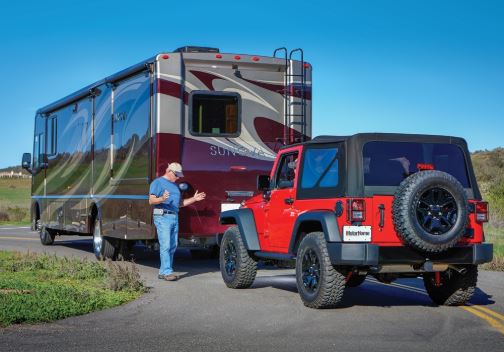
If you’re planning to spend lovely time during summer or the weekend, perhaps you should start knowing more information about towing services. Some people think that it is easy and you are going to hitch your caravan and be on the road. Towing isn’t that easy; that is why we are writing this review for you in order to avoid any kind of mistakes. One single mistake can be really expensive, illegal, and most importantly dangerous. Here is what you should know before towing.
1. Do the Math:
You will read and hear a lot about what you need to be able to tow properly. However, there are two main things that you should get before even thinking of first towing which are:
• A Calculator
• The Manufacturer’s Specifications. You need to do the math to be able to determine whether you follow the weight limits or not. Accidents happen all the time. The insurance company will check whether you’re overweight or not. If so, it’s illegal and they will reject your insurance claim. Also, you can be charged for traffic offenses. Some of them are pretty expensive. That is why you need to calculate the weight before towing.
2. The Manufacturer’s Claims Aren’t True:
Don’t trust the claims of the maximum towing weight that the manufacturer said. Most auto companies tend to exaggerate the legal maximum weight that your vehicle can tow. The main rule says that the combined weight of the vehicle and trailer must be less than the combined and individual legal maximum weights of the vehicle and trailer. Here is an example to illustrate everything. Let’s say that your vehicle’s legal maximum combination gross is 5500kg, the gross mass of the vehicle is 3000kg, and the maximum towing capacity claimed by the manufacturer is 3000kg. 6000 kg is more than the legal maximum
combination gross. It is important to check the maximum gross combination mass while buying a vehicle especially if you are going to use it as a towing vehicle.
3. Abbreviations:
You will see these abbreviations while checking the manufacturer’s guidelines or while checking online how to tow your vehicle.
• Kerb Weight = the weight of the unladen vehicle with just a full tank.
• GVM (Gross Vehicle Mass) = Kerb Weight + Payload + Occupants + Tow Ball Download.
• Payload = GVM – Kerb Weight.
• ATM or Aggregate trailer mass = Maximum Weight
• GTM or Gross Trailer Mass = Maximum Weight – Tow Ball Download.
• GCM or Gross Combined Mass = Maximum Loaded Weight of Vehicle + Maximum Loaded Weight of Trailer.
• Tow only when GCM is less than GVM + GTM.
This information is essential for anyone who is about to tow. You must take your notes and apply them to your vehicle before towing in order to avoid any kind of problems. Travel Safely.